
“Infection control measures, including surveillance, education, cleaning/disinfection, patient cohorting, isolation, and hand hygiene, effectively contained the outbreak; it was declared over within 2 months.”

“Infection control measures, including surveillance, education, cleaning/disinfection, patient cohorting, isolation, and hand hygiene, effectively contained the outbreak; it was declared over within 2 months.”

Beware the loophole. Many clinics are often classified as office space, not health care buildings, so they do not have adhered to ventilation standards.

Many members of environmental service teams feel underappreciated and these health care professionals are not trained in any systematic and continuous way, a study states.

Cedric Steiner: “But the nursing home…. One could make an argument that [infection control is] more important there in some ways, because you have those residents in smaller spaces."

Paula J. Olsiewski, PhD: “Healthcare workers at hospitals are always concerned about the air because historically, we know many disease agents are transmitted through the air, whether it’s measles or tuberculosis. Those appear on the scene long before COVID-19.”
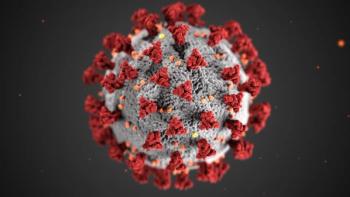
Though tough months lie ahead for infection preventionists and other healthcare professionals, hope remains that at some point in 2021 things will begin to settle down. In the end, it comes down to a simple formula: We win, COVID-19 loses.

Officials at the Children’s Hospital of Philadelphia have the ability to convert several floors into airborne infection isolation rooms (AII), or more commonly termed negative pressure rooms, with the flip of a switch.

Consult with experts in heating, ventilation, and air conditioning (HVAC) when determining the safety of the school environment, the CDC recommends.

New infection preventionists can use this checklist to perform IP rounds in the surgical suite, decontamination areas, and sterile processing area.
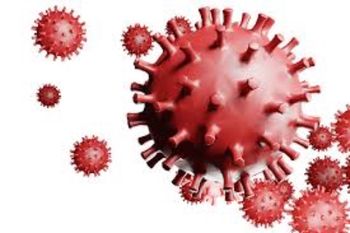
Researchers from China recommend disinfecting the air, alongside, sanitizing surfaces, to reduce exposures and transmission.

Where can we find data on whether or not water vapor is necessary for humans residing in buildings? One great place for such research is the hospital. There is a tremendous amount of data that is collected from one type of hospital building occupant—the patient.
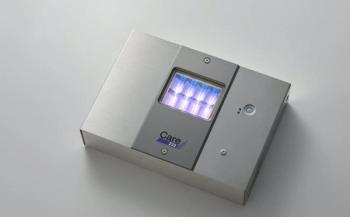
The Japanese company Ushio says that it will sell the Care 222 UV lamp to medical facilities first for about $2,800 a piece. The company also foresees the lamps being used on buses, trains, elevators, and offices.

Kevin Kavanagh, MD: “I think you’ll find that infection preventionists in this type of climate are just not healthcare employed personnel. They need to be everywhere. They need to be in business. They need to be in schools. And, of course, they need to be in our healthcare system. But it is crucial to be in schools…”
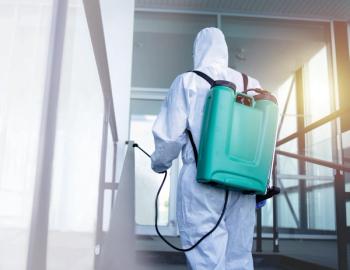
Infection preventionists should know that these technologies are available to add to their toolboxes of best cleaning and disinfection practices when they need them, but be aware of the caveats for their use.

Anthony Harris, MD, MBA, MPH: “Really now it’s all about testing. How do we test? What scale do we test with? And, you know, what are the steps toward getting that access to the testing levels that we need necessary to mitigate risk?”
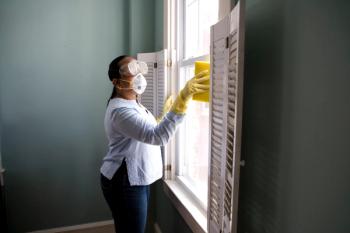
Sharon Ward-Fore, MS, MT(ASCP), CIC: “Although EVS is in charge of the cleaning process infection preventionists work carefully with them to make sure the process is followed by auditing it frequently. And both sides provide feedback to each other just to make sure everything follows best practices.”

Investigators found SARS-CoV-2 "on various hospital objects, and these surfaces can be sources of nosocomial transmission via direct contact. Therefore, our findings provide an important basis for justification of strict contact precaution.”

Mark Beeston: “Infection preventionists are a key component and a key gatekeeper in UVC technology and where it goes. Their recommendations are key and as clinical nurse leaders may be looking at providing additional tools, they want to consult with their infection prevention team.”
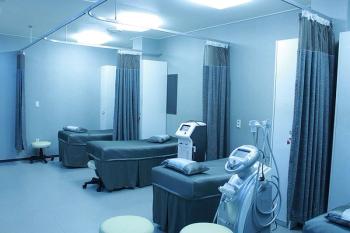
Charles Gerba, PhD: “I really think that in the future, what you really need is a specialist in infection control who understands both the environmental health services and also the professional staff that deals with the patients.”
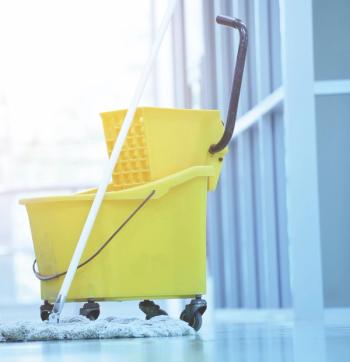
The swiftness and severity of the COVID-19 spread meant some hospitals were scrambling to adjust. Environmental services often led the way.
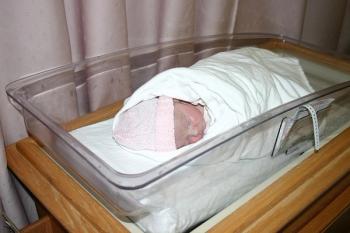
Sometimes the surfaces that are deemed easiest to keep clean in a hospital pediatric ward wind up being the most contaminated after cleaning. Preconceived notions may play a part.
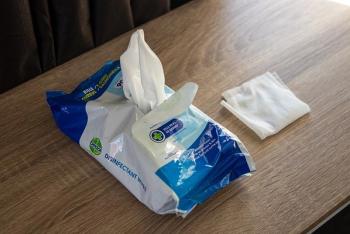
Disinfectant wipes became all the rage when coronavirus disease 2019 (COVID-19) struck but a study in the works says there's a dearth of knowledge about just how they should be used.

Sharon Ward-Fore, MS, MT(ASCP), CIC: “It is a collaboration, and I think the most successful environmental services department has an infection preventionist who really enjoys working with EVS.”


The use of disinfectant wipes in hospitals is increasing; these wipes should be able to inactivate microorganisms including viruses on environmental surfaces and to prevent their transfer to clean areas.